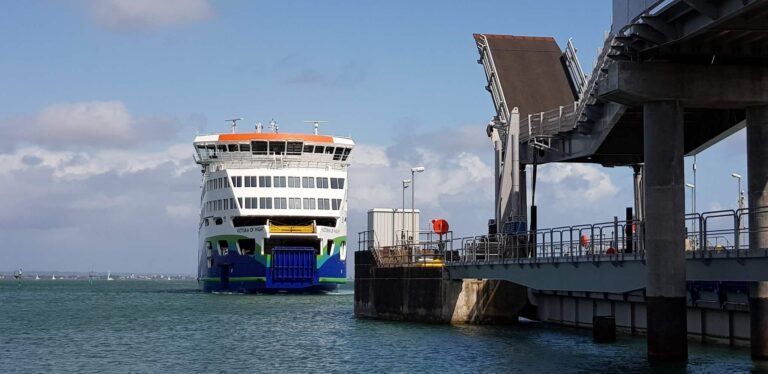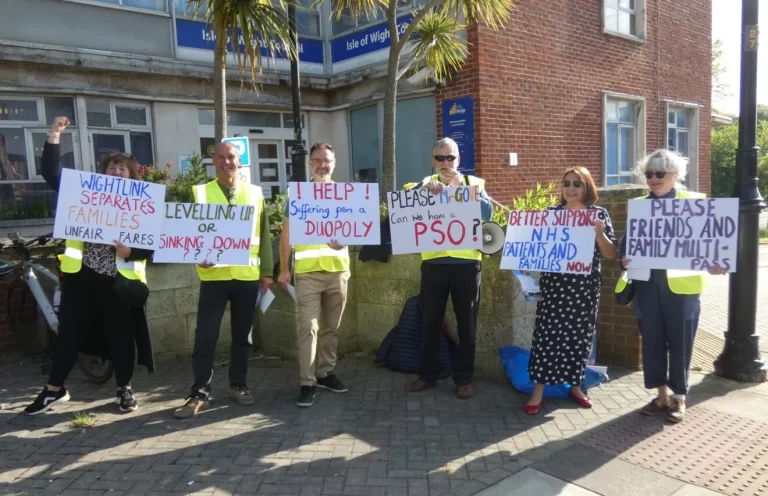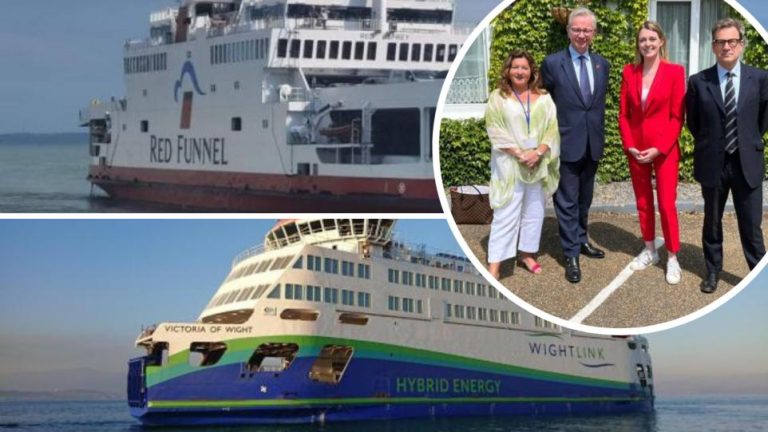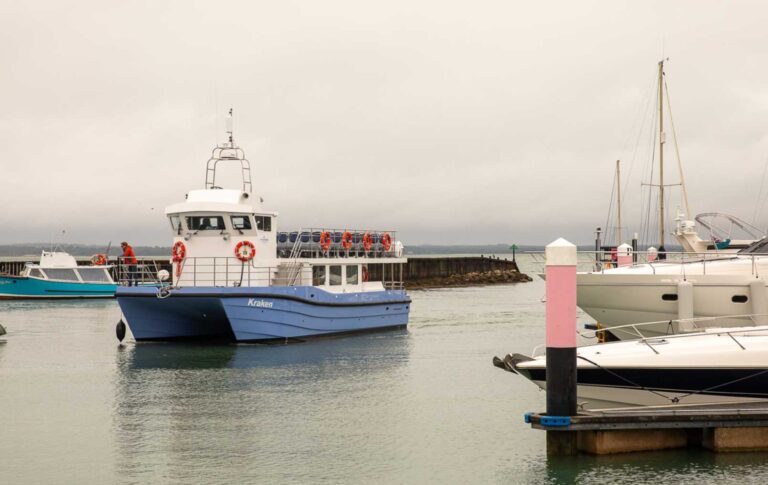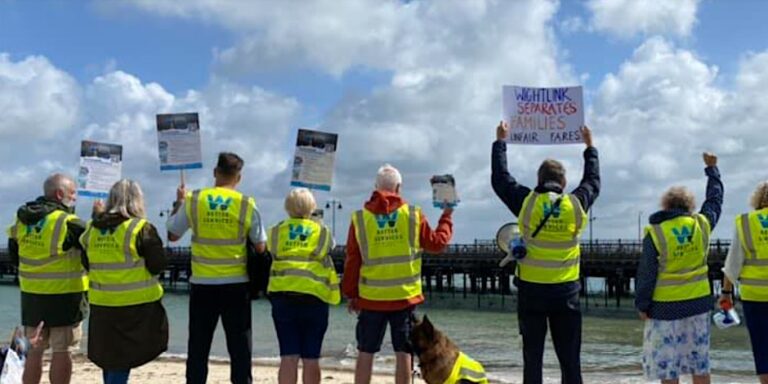BOB SAYS THE STATUS QUO MUST BE BROKEN AS REPORT INTO BETTER FERRY SERVICES IS RELEASED
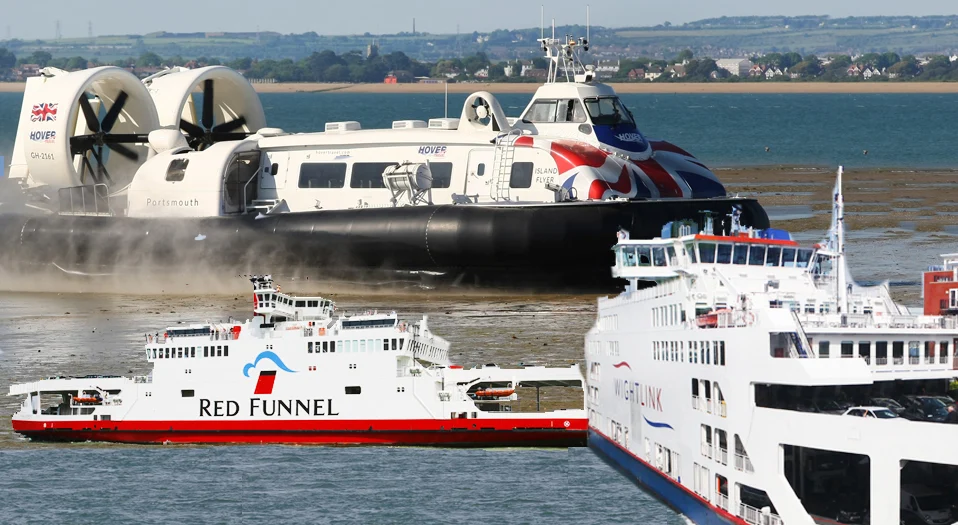
A report into how the Island can secure better ferry services and pricing, with suggestions of robust arrangements to hold ferry services to account – including regulation – has been released by the Isle of Wight MP, Bob Seely.
This article first appeared in the Island Echo. See here.
Mr Seely has this week released his in-depth study into cross-Solent ferry services, which comes at a time when Islanders are yet again being let down with delays and cancellations.
The MP’s report considers proposals for a Solent Ferries Regulator (SFR), Department for Transport oversight, price caps on health journeys and voluntary regulation.
A regulator could mandate more regular services, permanent improvements in early and late passenger services, stronger sanctions for the operators when services are cancelled, better compensation schemes for passengers affected by cancelled sailings, and duties placed on ferry companies to better connect with rail services.
The regulator could also mandate greater discounts for Islanders, more multi-link ticketing options, electronic through-ticketing on all services with ongoing rail connections and options for foot-passengers to book seats.
Speaking about the report, Bob Seely MP has said:
“The Isle of Wight needs, and deserves, a better deal from the ferry firms than the one we have. The status quo has lasted 40 years. I believe we need a new joint approach so I’ve written a plan for the Isle of Wight so we have a common agenda.
“My research has led me to believe that, using a web of offshore companies, Wightlink and Red Funnel’s owners and lenders have taken large profits out of the firms for years. To drive efficiency and take even more profits, directors have cut timetables; introduced surge pricing, which penalises Islanders for making essential journeys at peak times; and limited investment in ferries, some of which are now 34 years old. Islanders are tired of ‘technical’ and ‘mechanical’ issues. The firms pay little to no corporation tax and are accountable only to their shareholders. We all lose.
“So far, I have raised the issues with the ferry firms with three Secretaries of State for Transport and three separate Maritime Ministers. I have met with the local ferry firms on many occasions. Working with others, we have had some victories, including the Discounted Fares Scheme for Islanders, better rail connections at Lymington and later services into Ryde Pier Head.
“However, we need a collective plan as an Island to turn things around and that’s what I am going to deliver.
“I’ve released a report with some options for how we move forward. It includes ideas for better services, better pricing and ticketing and more transparent ownership. It identifies the problems and potential solutions. We need more robust arrangements in place to hold ferry services to account – and that includes regulation.
“I encourage all Islanders to read my report and send me their feedback on it”.
Mr Seely has said there are 3 good reasons why now is the time to act:
“First, both Red Funnel and Wightlink have ageing car ferries and require significant capital investment to renew their vessels and shoreside infrastructure. They will no doubt be asking the Government for financial support; therefore, I believe we should argue for something in return.
“Second, as part of the Islands Forum initiative which I lobbied for, the Government is looking into connectivity between the mainland and UK Islands.
“Third, during the Covid-19 pandemic, the ferry firms took a limited amount of public money in recognition that they had an obligation to provide lifeline services. That was the first time any government has ever recognised the importance of these services. Now is the time to build on that. Services, timetables and prices are currently at the ferry firms’ discretion, however with the Government already looking at minimum service levels for passenger rail, I think we should ask them to look at similar options for the ferries.”
Mr Seely is asking for feedback on his report over the next 2 months. Once feedback is collated, a final report will be produced which will then be presented to the Isle of Wight Council for the local authority’s support.
It’s hoped that a final report will enable re-engagement with Government ministers, officials and the ferry firms themselves with a clear agenda and a clear list of priorities.

